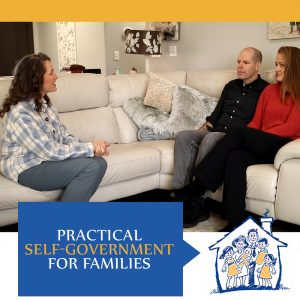Parents Say The Darndest Things
Parents Say The Darndest Things
Do you remember that old show about children who say the “darndest things?” The interviewer asks a child about something like why they are wearing a band aid or how ice cream is made and the child thinks it out and comes up with something worth laughing at? Often times the children sound like they are just making things up.
Well, parents say the “darndest things” sometimes too. I have heard some pretty creative and ridiculous things from the mouths of adults. Here are some of my favorite silly parent things to say and why the parent should pick a new thing to say.
-
“If you don’t stop it you are grounded for the night.” This statement and ones like it are threats. If you threaten children you are tolerating too many negative behaviors. Don’t try to make your children afraid, just teach them cause and effect. If they don’t accept a no answer, do a proper correction. Also, grounding for a whole night is probably too extreme of a consequence for most behaviors.
-
“You will have to sit at the table until your peas are all gone.” This statement is manipulative, just like the previous one. Make a rule ahead of time about how many bites a person has to take and what negative consequences go along with not eating their dinner. Also, teach them to disagree appropriately. Power struggles at the dinner table are not healthy. Side note, teaching children to eat a variety of adult type foods when they are small deters picky-ness.
-
“I’m going to count…one, two, two and a half…” I think that some parents think this is motivating to children. In reality it puts parents in the passive role. It’s almost like the parent is begging the child to follow instructions. Or, worse, the parent is threatening force if the instruction isn’t followed. Threats are manipulative and damage relationships. Just do a correction.
-
“What did I tell you about…?” Parents who try to get their children to recall previous conversations or no answers when the child has just been chastised or ‘found out’ will not get the child to respond to questioning. The child will feel anxiety and be worried that they will not come up with the right answer. This anxiety will make them forget all conversations. Don’t be a therapist when the child makes a mistake. Just do a calm correction. Be understanding and safe. Home should be the safest place to make mistakes.
-
“What were you thinking?” Again, this type of questioning will not go anywhere. The child will not be able to tell parents anything that will satisfy the frustration of the parent. Don’t ask lots of questions, just describe what you saw happen and what should have happened. Then do a proper correction.
-
“You’re such a brat…” This type statement does not make logical sense to me. First, the parent is immaturely calling the child a name. Second, the parent is labeling the child which creates a division and a false identity. Third, the parent is communicating is a selfish way. The parent is only thinking about how the child’s behavior affects them. People are not motivated to change a behavior because a parent is bugged. There is no principle there. Fourth, this statement is the beginning of a power struggle and encourages the parent to detach from the child. This will damage relationships. Last, the child will not feel understood or respected and will withdraw from the parent.
There are so many things I hear from parents as I go to the park or the store that can only be described as some of the “darndest things.” I know many of these things are just habits or things that we learned from our parents, but they are not helping reach our relationship goals with our children. Parents need to assess what they always say to their children and see if it matches the principles they are teaching their children.
If what you say doesn’t match your principles simply choose to say something else. We can all train ourselves to say something new. Deliberately decide what you will say and then act on purpose. It can even be effective to write down what you want your responses to be and read the responses a few times ‘in the moment’ to start a new communication habit. That is what I did when I started parenting troubled foster children. I had to say it right to get the impact I wanted, so I wrote down my correction and said it the same every time.
I know it sounds silly, but it is self-government and it really helps parents conquer the habits that are damaging their relationships.
Creating a united family is no accident. It happens because the family acts deliberately instead of emotionally or impulsively.
For more help implementing self-government try the Implementation Course






